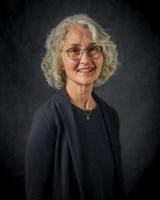On Demand OCD & Anxiety Lecture Series: What Is Reasonable?: The Intersection of OCD and Food Allergy Anxiety

This presentation was originally reviewed on October 16, 2024, and live streamed online on October 18, 2024, from 1:00 pm - 2:00 pm ET.
Category
- Anxiety/OCD
- Psychotherapy
- Workshop
Format
- On Demand
Credits
- 1.00 ACEP NBCC clock hours
- 1.00 AMA PRA Category 1 Credit™
- 1.00 Category II credits for Social Workers
- 1.00 Psychologists
- 1.00 MNA Contact Hours for Nurses
- 1.00 Participation
Cost $0.00
Live Trauma-Focused Cognitive Behavioral Therapy Training- Day 2

This activity is only available to Larry Epp's group and is by invitation on
Category
- Trauma
- Workshop
Format
- Live Webinar
Credits
- 4.00 ACEP NBCC clock hours
- 4.00 Category I credits for Social Workers
- 4.00 Psychologists
- 4.00 Participation
Event date October 24, 2024
Cost $0.00
Live Trauma-Focused Cognitive Behavioral Therapy Training- Day 3

This activity is only available to Larry Epp's group and is by invitation on
Category
- Trauma
- Workshop
Format
- Live Webinar
Credits
- 4.00 ACEP NBCC clock hours
- 4.00 Category I credits for Social Workers
- 4.00 Psychologists
- 4.00 Participation
Event date October 28, 2024
Cost $0.00
Live Grand Rounds: Psychodynamic Formulation: An Expanded Approach

Formulation is essential to every treatment. Without a formulation, we are unable to make a diagnosis, collaboratively create a treatment plan, or engage in treatment. Yet formulation is not always taught, and, when it is, this teaching is not always clear. In this talk, Deborah Cabaniss will discuss the work that she and colleagues in the Psychodynamic Formulation Collective have done to operationalize psychodynamic formulation and to place the effects of culture and society on par with other psychodynamic models of the mind. Clinically relevant to all patient settings, this talk will be of interest to trainees and seasoned clinicians alike.
Category
- Grand Rounds
- Psychodynamic Therapy
Format
- Live Webinar
Credits
- 1.50 ACEP NBCC clock hours
- 1.50 AMA PRA Category 1 Credit™
- 1.50 Category I credits for Social Workers
- 1.50 Psychologists
- 1.50 MNA Contact Hours for Nurses
- 1.50 Participation
Event date October 28, 2024
Cost $0.00
Live OCD & Anxiety Lecture Series: Is it All in My Head: Treating Health Anxiety

We all know we are going to die, but the when and the how are unknown. While many causes of death are due to preventable injury, the majority of death is caused by medical related factors such as cancer, stroke, heart disease, and Alzheimer’s to name a few. We often head to Dr. Google with our symptoms where we read that our headache can be caused by dehydration or possibly a brain tumor. Of course, we assume the worst. It is no wonder humans experience excessive health-related fears based on misperceptions of innocent bodily cues and sensations. Generally, we refer to these worries as Health Anxiety, however we are really talking about two different diagnoses: Illness Anxiety Disorder and Somatic Symptom Disorder. In this talk you will learn the difference between the two diagnoses and how to treat them using effective techniques.
Category
- Anxiety/OCD
- Psychotherapy
- Workshop
Format
- Live Webinar
Credits
- 1.00 ACEP NBCC clock hours
- 1.00 AMA PRA Category 1 Credit™
- 1.00 Category I credits for Social Workers
- 1.00 Psychologists
- 1.00 MNA Contact Hours for Nurses
- 1.00 Participation
Event date November 1, 2024
Cost $0.00
Live Grand Rounds: Evidence-Based Treatments for Anorexia Nervosa and Bulimia Nervosa

Eating disorders are complex. Weight restoration and cessation of disordered eating behaviors, along with psychotherapy, can reverse many of the psychological and physiologic consequences of these disorders. This presentation will cover the evidence base of how (getting started), where (treatment settings), and what (food, therapy, and psychopharmacology) that are involved in the treatment of anorexia nervosa and bulimia nervosa.
Category
- Eating Disorders
- Grand Rounds
Format
- Live Webinar
Credits
- 1.00 ACEP NBCC clock hours
- 1.00 AMA PRA Category 1 Credit™
- 1.00 Category I credits for Social Workers
- 1.00 Psychologists
- 1.00 MNA Contact Hours for Nurses
- 1.00 Participation
Event date November 6, 2024
Cost $0.00
Live Professional Workshop: Suppress, Rethink, or Change Your Situation? The Process Model of Emotion and How to Use It to Guide Emotion Regulation Strategies

All people experience needs to regulate their emotions throughout everyday life. Some of our strategies may be more useful than others, but sometimes lack of either awareness or practice of different emotion regulation strategies is a barrier to exploring more effective ways at regulating our emotions without ignoring them.
This presentation will cover: the process model of emotion generation and emotion regulation; how to use the process model to identify various places to regulate emotions; past research on two emotion regulation strategies: suppression and rethinking; practice utilizing the rethinking strategy; create a “plan to practice” an active emotion regulation strategy; suggestions for using the model in practice and ways of helping patients practice and self-monitor their emotion regulation effectiveness.
Teaching patients the process model of emotions and emotion regulation can provide an empowering framework for organizing and suggesting emotion regulation strategies. Attendees will also practice one emotion regulation strategy “rethinking” – and generate ways to aid their patients in practicing this strategy to add to a toolbelt.
Category
- Psychotherapy
- Workshop
Format
- Live Webinar
Credits
- 1.50 ACEP NBCC clock hours
- 1.50 Category I credits for Social Workers
- 1.50 Psychologists
- 1.50 Participation
Event date November 8, 2024
Cost $0.00
Live Professional Workshop: Speak, Move, Change: Decolonizing Your Practice, Restoring Your Power

In "Speak, Move, Change: Decolonizing Your Practice, Restoring Your Power," we will address how entrenched systems of racism and colonialism manifest in social work practice, particularly through language and communication. Social workers are often limited by institutionalized frameworks that perpetuate oppression, creating a clinical problem where bias and inequity undermine care. These issues persist because of a lack of critical reflection on how language, thought patterns, and communication styles reinforce oppressive systems. In this workshop, participants will explore how decolonizing their language and practice can restore their power to serve clients more equitably. Attendees will be introduced to strategies and tools to critically examine their communication, develop anti-racist practices, and gain skills to transform their work environments and client interactions.
Category
- Health Equity
- Minority Health
- Workshop
Format
- Live Webinar
Credits
- 1.00 ACEP NBCC clock hours
- 1.00 Category I credits for Social Workers
- 1.00 Psychologists
- 1.00 Participation
Event date November 15, 2024
Cost $0.00
Live Grand Rounds: You say Pain. I say Addiction. Let's call the whole thing off.

At the turn of the 21st century, pain management became a major public health concern, recognized as the 5th vital sign in VA healthcare, while opioid prescribing for chronic pain surged, leading to a fivefold increase in morphine milligram equivalents by 2010. In 2013, the DSM-5 redefined Substance Use Disorder (SUD) criteria, excluding tolerance and withdrawal for medically prescribed opioids. As the opioid epidemic unfolded, the limitations of long-term opioid therapy for chronic pain became evident, prompting current guidelines to discourage opioid initiation in favor of non-opioid approaches. However, some patients remain on long-term opioid therapy, struggling to taper without functional improvement, raising questions about whether these cases fit under mild Opioid Use Disorder (OUD) or require a new diagnostic category. This talk will address this ambiguity, outlining a clinical decision-making framework, and exploring the need for new diagnostic approaches when opioid harms outweigh benefits.
Category
- Addiction
- Grand Rounds
Format
- Live Webinar
Credits
- 1.00 ACEP NBCC clock hours
- 1.00 AMA PRA Category 1 Credit™
- 1.00 Category I credits for Social Workers
- 1.00 Psychologists
- 1.00 MNA Contact Hours for Nurses
- 1.00 Participation
Event date November 20, 2024
Cost $0.00
Live OCD & Anxiety Lecture Series: SPACE – Parent Based Treatment for Child Anxiety and OCD

This talk focuses on the role of parental behaviors in childhood anxiety and OCD. Highlighting the prevalence and comorbidity of these problems in children, the presentation underscores the importance of reducing family accommodation—a common parental response to a child’s anxiety that often exacerbates symptoms. SPACE (Supportive Parenting for Anxious Childhood Emotions) focuses on increasing parental support while decreasing accommodating behaviors, aiming to foster a child’s independence and confidence. The talk will provide an introduction to the rationale, evidence-base, and key steps of SPACE treatment.
Category
- Anxiety/OCD
- Psychotherapy
- Workshop
Format
- Live Webinar
Credits
- 1.00 ACEP NBCC clock hours
- 1.00 AMA PRA Category 1 Credit™
- 1.00 Category I credits for Social Workers
- 1.00 Psychologists
- 1.00 MNA Contact Hours for Nurses
- 1.00 Participation
Event date November 22, 2024
Cost $0.00

 Facebook
Facebook Twitter
Twitter LinkedIn
LinkedIn Forward
Forward